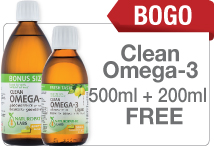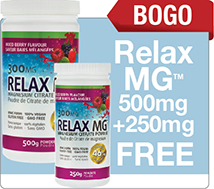Format
 Powder
Powder
90g
Dosage
Mix ½–1 teaspoon in a cup of hot water. Adjust to taste.
Important Information
This product is grown sustainably and without the use of pesticides – but is not certified organic.
- Ultra-fine, whiskable, vibrant blue powder
- Brilliant blue colour
- Deliciously aromatic, citrusy and bright
- Caffeine free
- Vegan, and free from gluten, sugar and soy
Related Videos
Articles by a naturopathic doctor.
Two Hills Tea
Two Hills Tea is dedicated to promoting natural health and healthy living through their range of high-quality teas. As a tea drinker, you can enjoy their natural supplements in the form of delicious and nourishing teas. With a focus on providing the best quality tea, Two Hills Tea ensures that every sip is a delightful experience that supports your overall well-being. Read more >MATCHA
Matcha is a finely ground and purified premium green tea that originated in Japan and has been used in traditional Japanese tea ceremonies for nearly 800 years...
As soon as the young leaves found on the top of the plant are harvested, they are steamed, dried and then further processed to remove the veins, stems and impurities. After this, only about 10% of the original harvest remains, and this is very carefully hand ground to a fine powder.
How Is Matcha Different From Green Tea?
Because matcha consists of powdered purified green tea leaves, when it is taken as tea or in food, the entire leaf is ingested. Green tea on the other hand consists of dried leaves steeped in hot water. This releases only some of the constituents while others remain trapped in the leaves. As such, ingesting matcha can provide you with the complete benefits of the nutritional and medicinal properties of green tea that simple steeping may miss.
Is It Really Like Drinking 10 Cups Of Green Tea?
Matcha is packed full of antioxidants. Green tea has been receiving accolades for several years now for its intense antioxidant abilities that have been successful in preventing and treating many conditions including: arthritis, infections, age-related diseases, cardiovascular disease, as well as aiding in weight loss. Matcha takes that to the next level with antioxidant levels that are between 10 and 200 times higher than regular green tea (depending on the quality of the green tea used for comparison). Strong antioxidant powers means that matcha can help to prevent, and maybe even treat, age-related disorders. In addition, one cup of relatively weak matcha tea (2 teaspoons of powder) will contain nearly 10 times the catechins found in one cup of regular green tea. So, in antioxidant and catechin content, one cup of matcha tea is actually almost the equivalent of 10 cups of regular green tea! For more information on the many benefits of green tea (and matcha), please see our green tea article.
What Else Can Matcha Do?
Prior to harvesting the tea leaves that will be used in matcha, the plants are shaded for two weeks to promote increased chlorophyll production, which is what gives matcha its bright green colour. The resulting high levels of chlorophyll act to help detoxify the body by drawing out and binding to chemicals and heavy metals in the body tissues.
Because it consists of the whole leaf, matcha also has a relatively high content of amino acids by weight. Much like other green tea, it also contains L-theanine, an amino acid that promotes relaxed brain waves in humans. It also contains some caffeine and nutrients that help to boost mental-alertness. Combined, they improve presence of mind that you'd get from coffe, while still having the calming effect of tea.
What Does It Taste Like, And How Do I Take It?
Matcha flavour is a rich, fresh "green" taste that tends to blend well with dairy, and thus can be found in many food and drink options such as: sweets, ice cream, cheese cake, chocolate, hot chocolate, lattes, and even cream cheese. To those who have read the green tea article, I would like to note that although that article recommends avoiding mixing green tea with dairy, the levels of antioxidants in matcha are much higher, that their reduction is no longer a significant concern.
In addition to being eaten in foods, matcha can be made into a tea. To make matcha tea, simply dissolve matcha powder in hot (not boiling) water and stir vigorously (you can buy a traditional bamboo whisk to help you mix it fully and create froth, if desired). The amount of matcha and water depend on your taste preference with anywhere from 1 to 6 teaspoons per 3/4 cup of water. Generally, there is approximately 3.5g of matcha in a teaspoon, and the traditional serving size of matcha is 1/2-3/4 cup.
Matcha – Quick Facts
Parts Used
· Finely Ground Purified Leaves.
Applications
· Antioxidant, Cardiovascular Disease, High Cholesterol, Infections, Arthritis, Aging, Osteoporosis
Optimum Dosage
· One Cup Per Day Of Matcha Tea Or Between 3 And 21g Of Matcha Powder (1-6 Teaspoons). (Clinical Doses May Be Higher As Recommended By Your Practitioner).
Works Well With
· Other Antioxidants Such As Vitamin C, Vitamin E, Selenium, And Coenzyme Q10
Important Information
· The Caffeine Present In Matcha May Not Be Suitable For Certain Individuals.
· Matcha Should Not Be Used With Stimulants, Blood Thinners, Or By Individuals With Blood Disorders Or A Decreased Ability To Clot.
· All Green Tea Should Be Discontinued 2 Weeks Prior To Surgery Or Dental Work.
· Check With Your Healthcare Practitioner If You Are Unsure About Your Use Of Green Tea.
- Reviews
- POST A NEW REVIEW





















